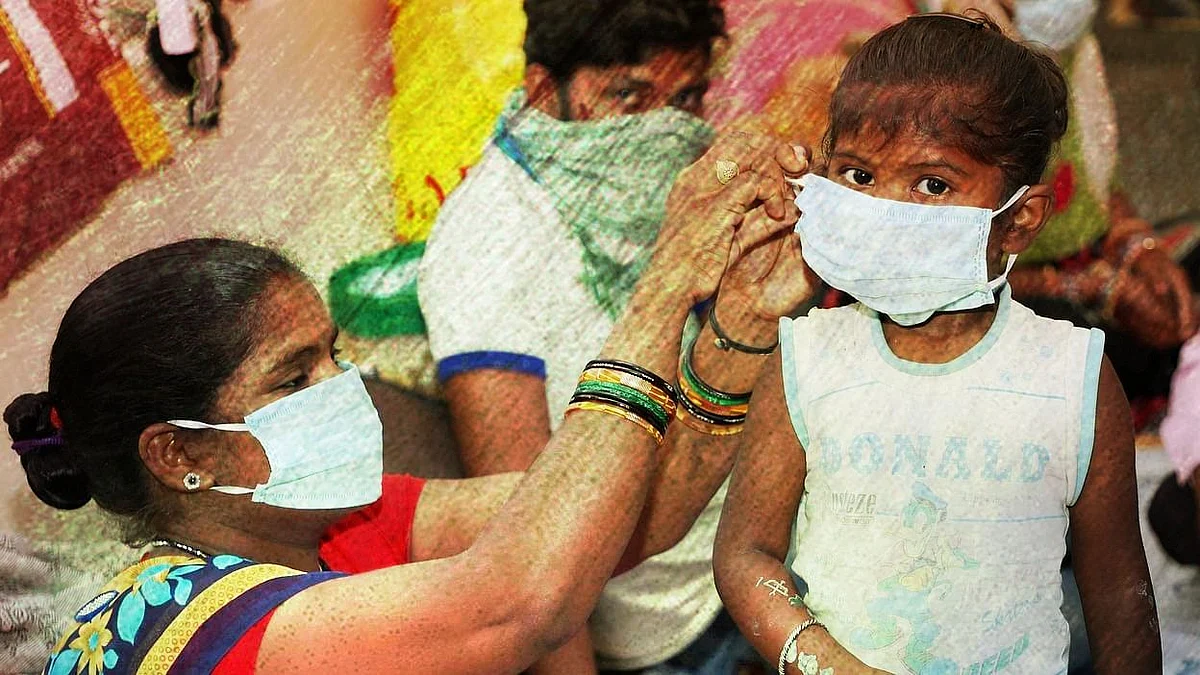
FAQ: When Will Children Be Able to Get COVID Vaccine in India?
Experts say that children are at a greater risk of getting COVID, since they have not been vaccinated.

advertisement
Even though the number of children falling ill during the coronavirus pandemic has been less compared to the youth and the elderly, we can't say for certain that children will be safe in the future. While we haven't seen critical cases in children so far, some kids can get very sick and have complications.
Experts say that the children are at a greater risk, since they have not been vaccinated.
Simultaneously, we will have to ensure safety measures are taken at schools, so that exams and other activities for children can be resumed. This depends heavily on the usage of masks, social distancing, healthy hygiene and vaccination.
When will the vaccine be available for children? In which countries are vaccines available for children so far? What is the update regarding the trial of COVID vaccine for children? Here are the details.
Which vaccines have already been approved for children so far, and in which countries?
- Pfizer-BioNtech vaccine became the first COVID vaccine in the world to have been approved for use in Canada and the US for children in the age group of 12 to 15.
- However, Canada was the first country to approve the vaccine for children between the age group of 12 to 15. Until then the vaccine was administered to those above the age of 16.
- On 10 May, US regulators gave clearance to the Pfizer vaccine for emergency use for children in the age group of 12 to 15.
Is Pfizer’s vaccine safe and effective for children?
In a press release issued by the company on 31 March, it was reported that Pfizer's vaccine was found to be 100 percent effective in a Phase 3 study involving 2,260 people in the age group of 12 to 15.
Pfizer and BioNTech dosed the first healthy children in a global Phase 1/2/3 seamless study to further evaluate the safety, tolerability, and immunogenicity of the Pfizer-BioNTech COVID-19 vaccine in children 6 months to 11 years of age.
Is Moderna safe and effective for children?
- US firm Moderna has released results of its second and third stage trial results for children.
- As per statement released on 25 May, the Moderna vaccine is 100 percent safe and effective for children aged between 12 to 18.
- 3,732 children participated in the trial.
When will Moderna be approved for use?
- After encouraging results, Moderna has said that it'll apply to the USFDA and other regulatory bodies across the world for approval in June.
- If Moderna gets a green light, it'll be the second vaccine for teenagers in the US.
I live in India. Can I vaccinate my children?
No. As of now, only those above the age of 18 can get COVID vaccine in India.
Are vaccine trials for children being conducted in India?
- Bharat Biotech – the manufacturer of Covaxin – has been given permission by the Drug Controller General of India (DGCI) to initiate a trial for vaccine for children.
- According to reports, Bharat Biotech has divided this trial for children into three age groups – 12 to 18, 6 to 12, and 6 months to 6 years.
- According to the officials at Bharat Biotech, the trials for age group 12 to 18 will start as early as June 2021.
- On 27 May, the NITI Aayog said that the trials on children will begin in India soon.
- The vaccination for children will be decided only after sufficient data is available based on the trial.
I’m in the 12th grade. Will I be able to get vaccinated before my board exams are conducted?
- Delhi Deputy Chief Minister Manish Sisodia has suggested that before conducting the Class 12 board exams, Centre should purchase vaccine for children above the age of 12.
- If the vaccines that are eligible for 18-year-olds can be given to 17.5 year olds after consultation with health experts, then the existing vaccines should be immediately given to class 12 children, he said.
Which other companies are conducting vaccine trials for children?
- In addition to Pfizer-BioNTech and Moderna, Johnson & Johnson has begun conducting trials for those aged 12 to 18 years.
- Like Pfizer, Moderna is also conducting vaccine trails on children aged between 6 months and 11 years.
- In the UK, Oxford-AstraZeneca is conducting a vaccine trial on 300 children, in which researchers will see if the vaccine produces an immune response on children aged 6 to 17 years.
Why does the vaccine need to be tested on children?
- Although there isn’t much difference between a teen and a young adult, different vaccine doses are sometimes needed to achieve a similar safety profile and immune response in children, like in adults.
- This is especially true in the case of toddlers and infants whose immune systems haven’t fully developed yet.
- The tests are also important to make sure the vaccine is as safe in babies and teens as it is in adults.
(This was first published on FIT.)
(At The Quint, we question everything. Play an active role in shaping our journalism by becoming a member today.)
- Access to all paywalled content on site
- Ad-free experience across The Quint
- Early previews of our Special Projects
Published: undefined